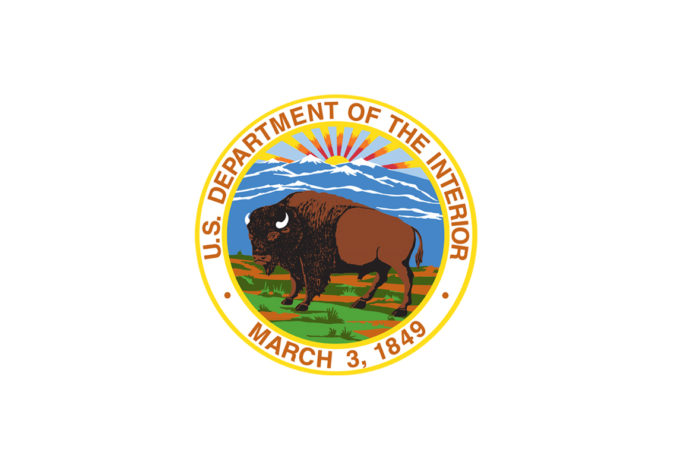RAPID CITY, SD – Secretary of the Interior Deb Haaland recently visited South Dakota, where she highlighted the Biden-Harris administration’s commitments to strengthening tribal communities, protecting our public lands, and investing in the nation’s infrastructure.
In Rapid City, Secretary Haaland and Assistant Secretary – Indian Affairs Bryan Newland met with tribal leaders of the Great Plains Tribal Chairman’s Association. During the meeting, Secretary Haaland discussed the Department’s progress for Indian Country and commitment to honoring the agency’s trust and treaty obligations. Secretary Haaland also highlighted how the Bipartisan Infrastructure Law makes historic investments in tribal communities, including a $466 million investment in tribal infrastructure projects and climate resiliency initiatives. The Department leaders also met with local Indigenous youth participating in the 2021 Lakota National Invitational.
“As the effects of climate change continue to intensify, Indigenous communities are facing unique challenges that pose existential threats to tribal economies, infrastructure, livelihoods and health,” said Secretary Haaland. “With new resources to invest in tribal communities, we are committed to ensuring that tribal leaders have a seat at the table and can work directly with federal officials to safeguard their communities.”
Secretary Haaland also visited Wind Cave National Park, where she heard about investments the park is making to improve its infrastructure and enhance visitors’ experiences. The infrastructure law provides for a five-year reauthorization of the Federal Lands Transportation Program, which will help invest in repairing and upgrading National Park Service roads, bridges, trails and transit systems. The law also invests in projects that will help fund bridge replacements and resiliency, repair ferry boats and terminal facilities, and maintain wildlife crossings that keep people and surrounding wildlife safe.
“The infrastructure law makes historic investments in bolstering community resilience, protecting natural areas, and strengthening our response to the effects of climate change,” said Secretary Haaland. “This is the largest investment in physical and natural systems in American history, and a much-needed down payment to ensure our grandchildren and great-grandchildren get to enjoy the same outdoor experiences we all have today.”
Secretary Haaland also toured the D.C. Booth Historic National Fish Hatchery and met with local landowners who are participants in the Partners for Fish and Wildlife Program. The U.S. Fish and Wildlife Service program offers financial and technical assistance to interested landowners, helping to keep working lands in working hands. In the past year, the program completed 2,085 projects, which restored and enhanced 241,753 upland acres, 16,879 wetland acres, 242 river miles, and 57 fish passage structures. Every Partners for Fish and Wildlife dollar leveraged approximately four non-program dollars to maximize return on investment. The Secretary underscored the importance of the America the Beautiful initiative, a locally led effort to conserve, and restore 30 percent of U.S. lands and waters by 2030, and its focus on supporting the voluntary stewardship efforts of private landowners, including those on working landscapes.















































